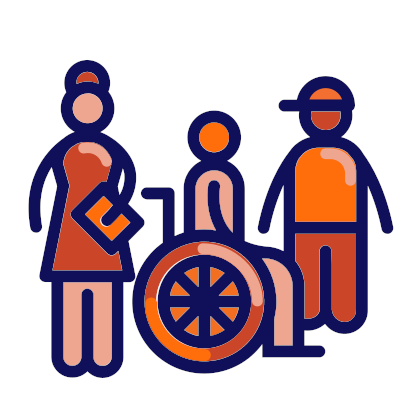Dealing with propaganda, misinformation and fake news

It is vital for schools to provide students with a solid education on media and information literacy as part of the curriculum.
Teachers must be well-trained in the subject to empower students with the necessary competences to critically understand and assess information reported by all forms of media.
Projects in partnership with national and local authorities and media organisations are encouraged.
Facts & figures
Two thirds of EU citizens report coming across fake news at least once a week.[1]
Over 80% of EU citizens say they see fake news both as an issue for their country and for democracy in general.[2]
Half of EU citizens aged 15-30 say they need critical thinking and information skills to help them combat fake news and extremism in society.[3]
What is propaganda, misinformation and fake news?
The terms ‘propaganda’, ‘misinformation’ and ‘fake news’ often overlap in meaning. They are used to refer to a range of ways in which sharing information causes harm, intentionally or unintentionally – usually in relation to the promotion of a particular moral or political cause or point of view.
It is possible to separate out three clearly different uses of information which fall into this category:
- Mis-information - false information shared with no intention of causing harm
- Dis-information - false information shared intentionally to cause harm
- Mal-information - true information shared intentionally to cause harm.[4]
Although none of these phenomena are new, they have taken on new significance recently with the widespread availability of sophisticated forms of information and communication technology. The sharing of text, images, videos, or links online, for example, allows information to go viral within hours.
Why is propaganda, misinformation and fake news important at school?
Since information and communication technology is so central to their lives nowadays, young people are particularly vulnerable to propaganda, misinformation and fake news. Young people spend a significant amount of their time watching television, playing online games, chatting, blogging, listening to music, posting photos of themselves and searching for other people with whom to communicate online. They rely heavily on information circulated online for their knowledge of the world and how they perceive reality. Many parents do not have sufficient technical competence to keep up with their children’s online activity, or educate them about the risks they might be facing. Schools, therefore, have a duty to provide young people with the critical and information skills which they cannot access at home.
“The significant rise of fake news as propaganda in recent years makes it critical that students have the skills they need to identify truth and discern bias.”[5]
The ability to respond critically to online propaganda, misinformation and fake news is more than a safe-guarding tool, however, it is also an important democratic competence in its own right. Analytical and critical thinking, and knowledge and critical understanding of the world, including the role of language and communication lie at the heart of the Council of Europe Reference Framework of Competences for Democratic Culture. They are central to Digital Citizenship Education and Media and Information Literacy.[6]
“School is the one place where it is absolutely crucial to train future citizens to understand, to criticise and to create information. It is in schools that the digital citizen must begin and maintain constant critical thinking in order to attain meaningful participation in his or her community.”[7]
The ability to handle off-line as well as online propaganda, misinformation and fake news is also a key skill in a number of other school subjects, e.g., History, Social Studies, Science, Religious Studies and Art. Young people may study the use of nationalistic and patriotic slogans, or so-called ‘atrocity propaganda’ in WW1 in History, for example; or art forms designed to support particular ideologies in Art lessons.
Another area in which information and communication technology is becoming an issue for schools is through adverse comments made about teachers and schools on social media. Schools are finding that parents and others increasingly turn to social media when they have a dispute or disagreement with their school, e.g., over school rules, school policies, or staff behaviour. How to handle online critical or defamatory comments or campaigns of this sort has become a matter of concern for leaders and managers in some schools.[8]
What are the challenges?
There are a number of challenges facing schools wishing to take propaganda, misinformation and fake news seriously as an educational or social issue:
- Teachers’ own online activity and area of experience is often quite limited and frequently lags behind that of their students. This can make them reticent to take on this area of teaching and learning without a significant commitment to professional development.
- The speed with which technology and young peoples’ online activity changes makes it difficult for teachers to keep up-to-date with recent developments. Even professional development programmes can go rapidly out-of-date.
- It can be difficult finding a discrete slot in the school timetable where issues relating to the creation and sharing of information can be taught. While aspects may be raised in a number of subjects, it can be a problem finding a space in an over-full curriculum where the phenomenon can be dealt with head-on as an issue in its own right.
- The description ‘fake news’ does not mean there is such a category as ‘true’ news. All news is a selection and written to suit a particular audience for a particular purpose. Providing the depth of analysis and sophisticated skills that do justice to this topic can be a challenge for some schools, especially in terms of teacher competence and training.
“States should take measures to promote media and digital literacy, including by covering these topics as part of the regular school curriculum and by engaging with civil society and other stakeholders to raise awareness about these issues.”[9]
How can schools get active?
Providing training for teachers on media and information literacy is the key to raising the profile of the issue in schools. Even though it may have a tendency to date, training can at least alert teaching staff to the importance of this area of learning for their students. The more important teachers see the area, the more they will feel the need to continuously up-date their skills themselves.
While it is important to recruit as many teachers as possible to this work, it can be more effective in the long run to start by appointing an individual teacher, or a small team, to lead on media and information literacy in the school. This element of specialist expertise can be charged with:
- Keeping staff up to date with new developments in information and communication technology
- Training them in strategies for handling propaganda, misinformation and fake news
- Helping them integrate these issues into the curriculum of different subjects
- Leading on school-policy development and action planning in this area.
In addition to these sorts of developments, there are a number of other initiatives a school can take to meet the challenges of the rapidly changing world of online propaganda, misinformation and fake news. These include:
- Special days or events in school on the subject of propaganda, misinformation or fake news as a way of overcoming the problems of an over-crowded formal curriculum
- Peer education initiatives in which older students instruct and counsel younger students in the safe handling of information they access in the media
- Partnerships with outside professionals or companies with expertise in this area, e.g., journalists, IT companies, universities
- Virtual links with schools in other regions or countries enabling students to get a different perspective on news and current affairs
- Recruiting parents with expertise in information and communication technology to help with school policy development or work alongside teaching staff to enrich student learning.
[1] Flash Eurobarometer 464 , 2018
[3] Flash Eurobarometer 455, 2018
[4] Wardle & Derakhshan, H., 2017. Information Disorder: Toward an interdisciplinary framework for research and policy making. Strasbourg, France: Council of Europe.
[5] When is fake news propaganda?, Facing History and Ourselves, 2018
[6] Digital Citizenship Education Handbook, 2019
[8] Council of Europe: Managing Controversy: a whole school training tool, 2017
[9] OSCE: Joint declaration on freedom of expression and “fake news”, disinformation and propaganda
 Resources on Dealing with Propaganda, misinformation and fake news
Resources on Dealing with Propaganda, misinformation and fake news
 Related schools projects
Related schools projects
Address: Strada Petre Andrei, nr. 9, Iasi, 700496
Country: Romania
Project: Active Citizenship among our Students
 Working language during the project:
Working language during the project:
- Romanian
 Themes of the Council of Europe campaign “FREE to SPEAK, SAFE to LEARN - Democratic Schools for All” covered:
Themes of the Council of Europe campaign “FREE to SPEAK, SAFE to LEARN - Democratic Schools for All” covered:
- Making children’s and students’ voices heard
- Addressing controversial issues
- Dealing with propaganda, misinformation and fake news
 Competences from the Reference Framework of Competences for Democratic Culture (CDC) addressed and where / how they were integrated:
Competences from the Reference Framework of Competences for Democratic Culture (CDC) addressed and where / how they were integrated:
- Responsibility
Students from the 8th grade assumed responsibility for checking facts about a local problem that affects the whole community. Students from the 12th grade also proved they could take responsibility when they disseminated information to their peers about the importance of voting in the European Parliament general elections. - Valuing democracy, justice, fairness, equality and the rule of law
Students from the 8th grade acted as part of a true civil society when they set about to propose a public policy for a local problem. They also learned how to confront existing local regulations with human rights principals embedded in the European regulations and Romanian constitution. - Analytical and critical thinking skills
Students from the 8th grade had to do an in-depth research on reliable media sources in order to get the best information about their subject. Students from the 12th grade became acquainted with the checks and balances of the European Union institutions and the relation between the European Union with the member states and its citizens.
 Target group age range:
Target group age range:
- 15 - 19
 Level of education:
Level of education:
- Upper secondary education
Short description of the project:
The initiative was named Active Citizenship among our Students and was formed of two main projects: A. The training course “The Citizen for history teachers from Moldova Region” in partnership with Intercultural Institute Timisoara, and B. The project FutureEU.
A. The training course The Citizen was aimed at history teachers from the Moldova Region who teach civic education to 7th and 8th grade students. The course took place in our school from March until June 2019. The project consisted of 40 hours of training. Teachers had to apply the method in their classes while still in training. The Citizen is a learning method by project and our students from the 8th grade learned how to propose a public policy for a local problem. The activity took place on a weekly basis, during the lessons on Citizenship, and students learned how to vote for a specific local problem they wanted to address; how to get valuable and meaningful information regarding the selected problem and the existing administrative solutions for it; how to use professional media websites and not fall for gutter press or outright fake news; how to check European regulations and the Romanian Constitution on observing human rights in the specific solution found to the problem; how to refer the proposed public policy to local administrative authorities.
B. The project FutureEU wanted to inform the students in the 12th grade about the European Parliament general elections and it was implemented from January to April 2019. The team project was made up of Cristina Timofte (principal of the school), Vlad Enasescu (12th grade student) and Emil Juverdeanu (history teacher). The activity aimed to promote European active citizenship and to inform the students about the importance of European institutions. We organised debates in which students participated. We followed themes such as: 1. The future of the European Union depends on our involvement in active citizenship; 2. EU institutions; 3. The rights for European citizens; 4. We can also be democratic leaders for Europe. The project was aimed at growing the number of well-informed young students who will vote in the European Parliament general elections.
 Aims/objectives
Aims/objectives
- To actively participate in elaborating a public policy for a specific local problem;
- To learn how to get information from reliable media websites;
- To identify specific problems that affect local community;
- To identify the rights of European citizens;
- To explain the importance of the European Parliament general elections for European democracy;
- To increase the number of well-informed young students from the Informatics High School who will vote in the European Parliament general elections for the first time.
 Expected results/outcomes
Expected results/outcomes
- 30 students from the 8th grade learn how to propose and refer a public policy to local administrative authorities;
- 150 students from the 12th grade are well informed about the rights for European citizens and the importance of the European institutions;
- Weekly lessons on European citizenship are given to 12th grade students from Liceul Teoretic de Informatica Grigore Moisil.
 Changes
Changes
- Students from the 8th grade learned how to propose and refer a public policy to local administrative authorities;
- Many students of our school participated in the European Parliament general elections on 26th of May 2019;
- Many students of our school popularised the importance of these elections among their peers from other high schools from Iași;
- 15 (2%) students of our school enrolled in Associations that promote the democratic values like the UN Youth Association of Romania.
 Challenges you faced
Challenges you faced
We are not allowed to talk politics in Romanian schools, so we tried to maintain a professional discussion with our students, which was challenged by our students' questions.
We also tried not to direct our discussions towards a certain political doctrine.
The students still think that politics can't be changed by ordinary people.
 Time-frame of the project:
Time-frame of the project:
The project took approximately 4 months to complete.
 Council of Europe materials on citizenship and human rights education used while preparing or implementing your practice:
Council of Europe materials on citizenship and human rights education used while preparing or implementing your practice:







